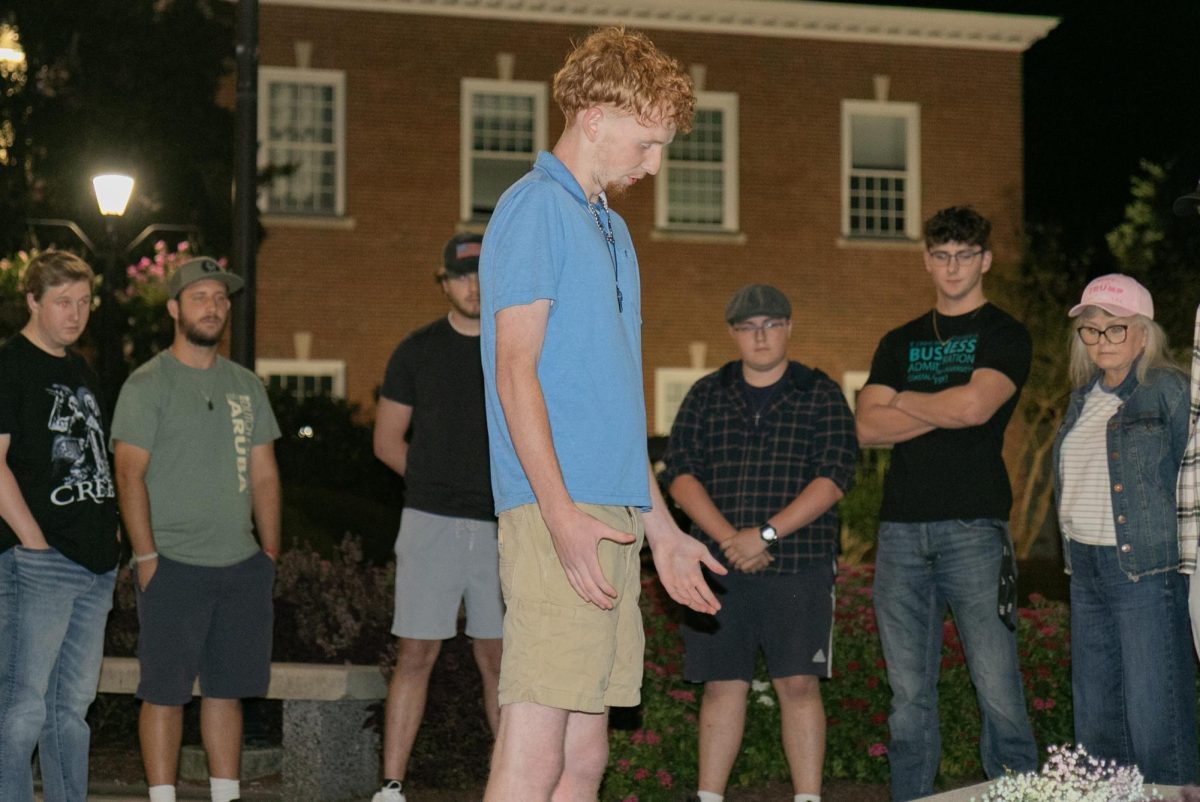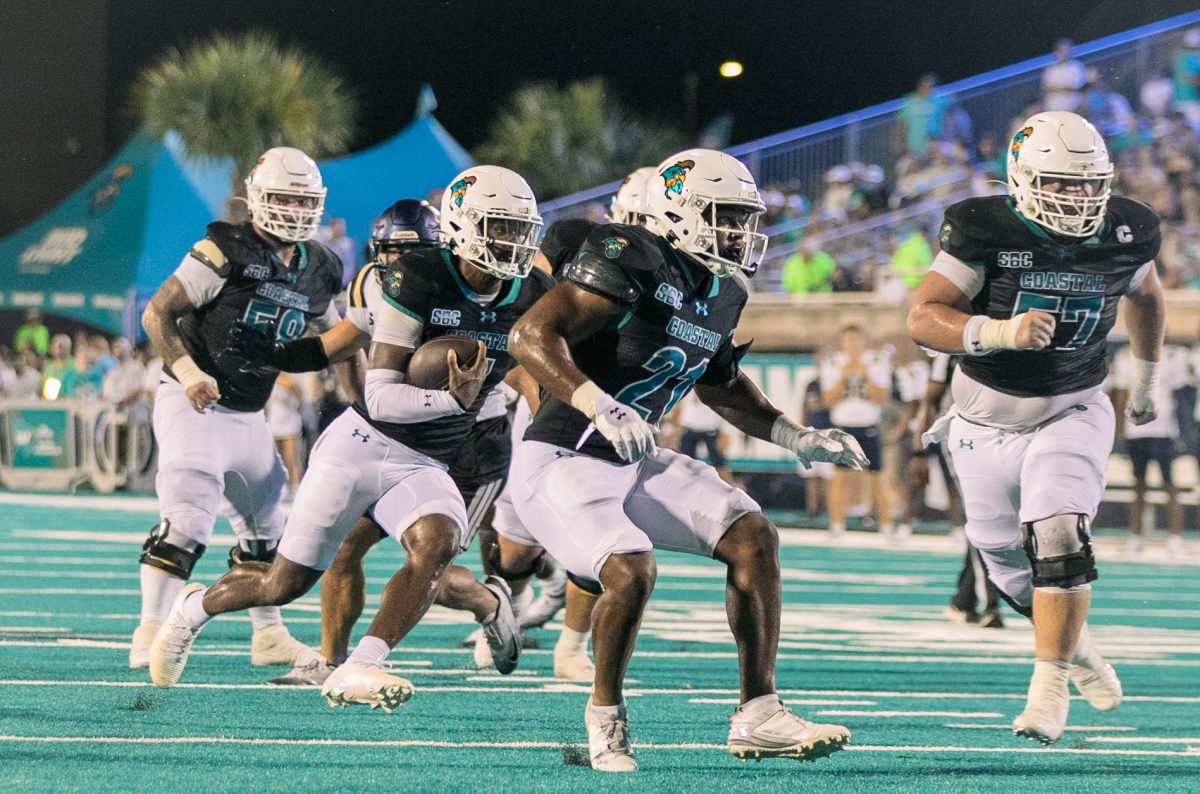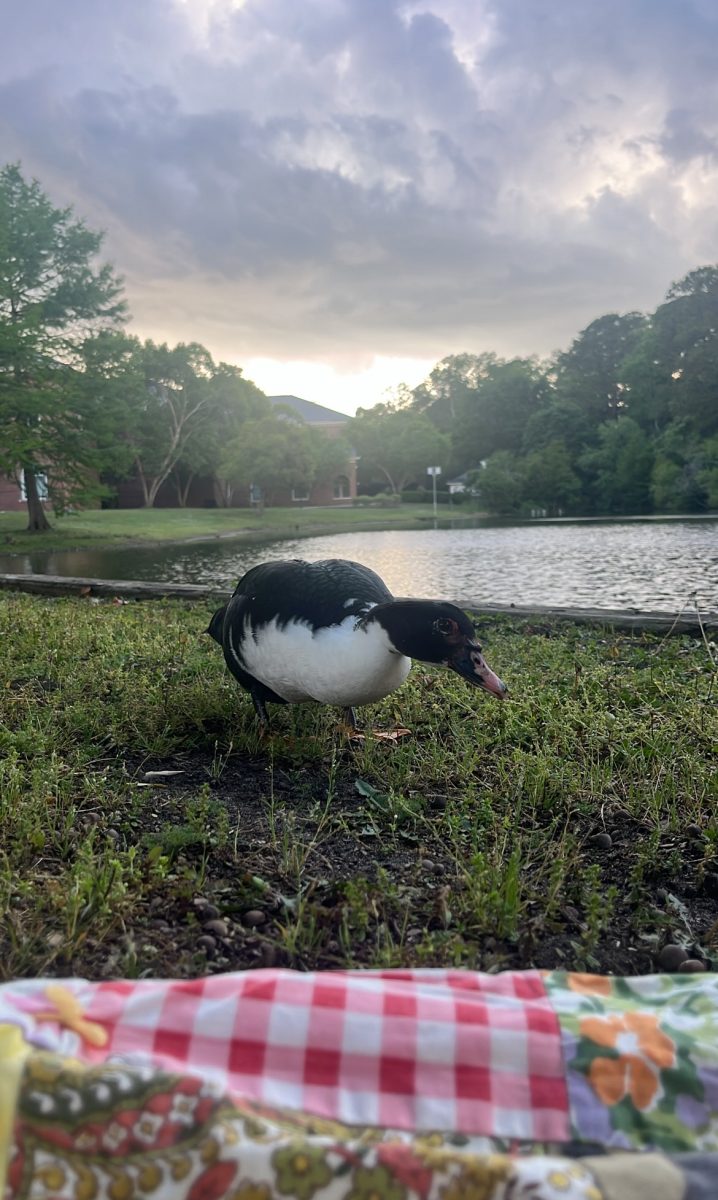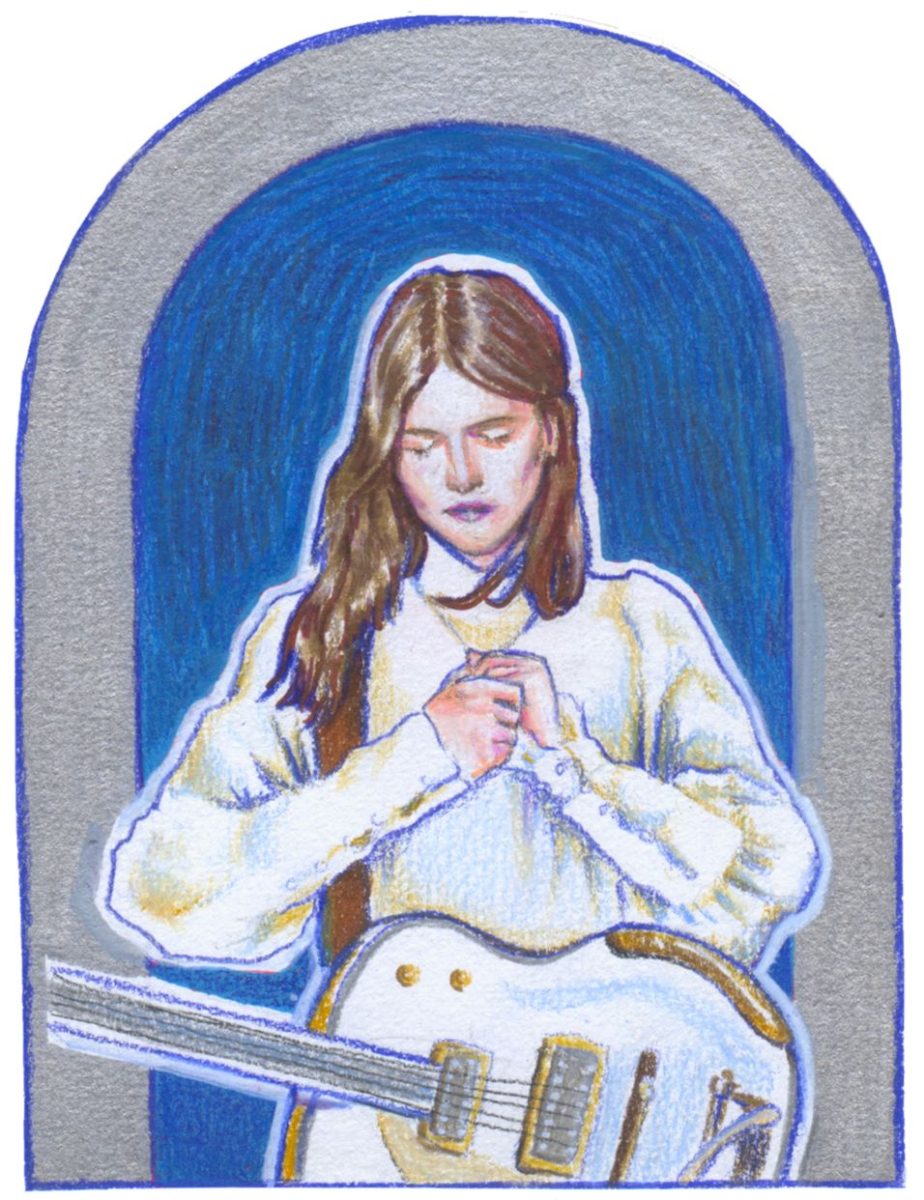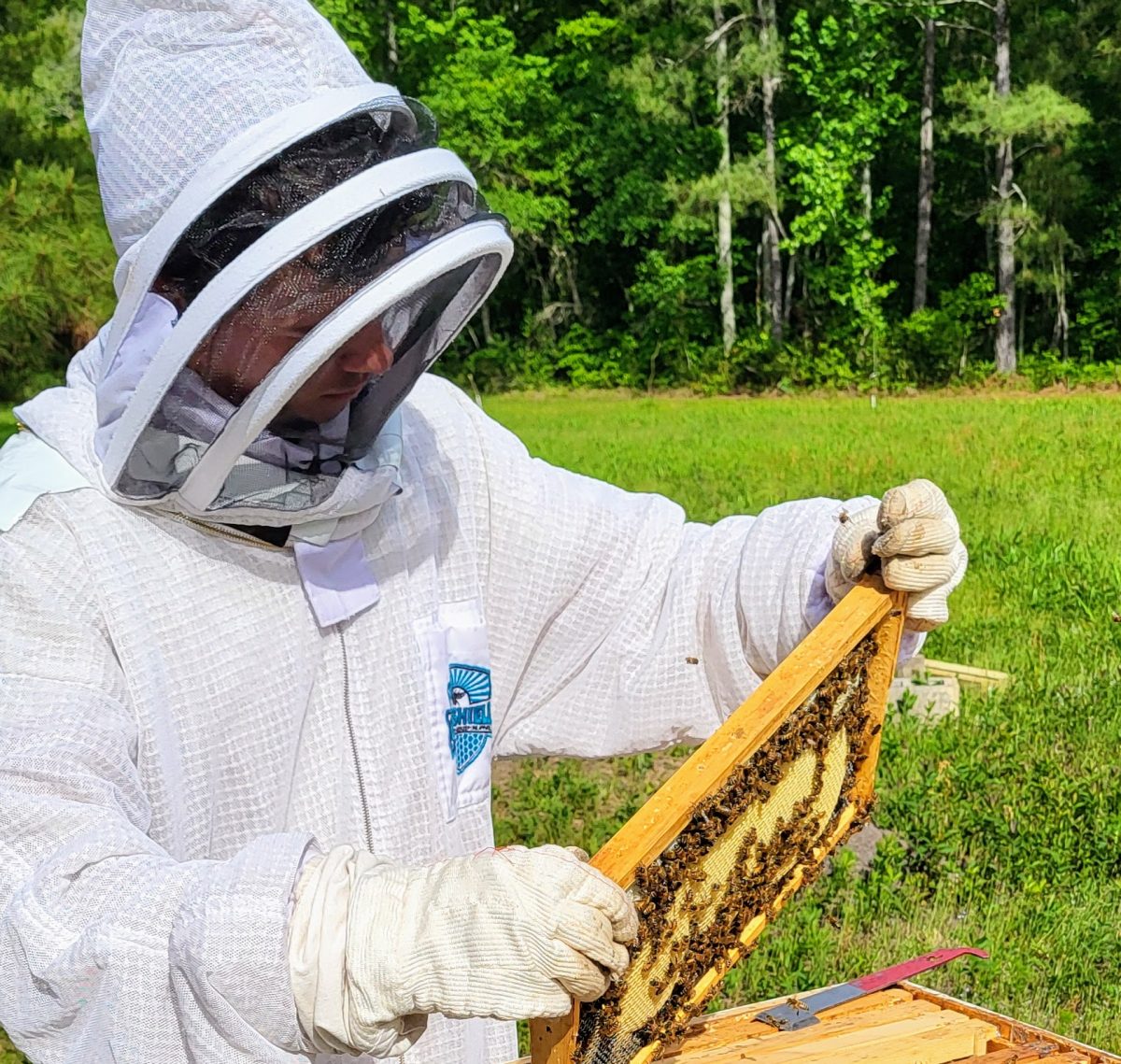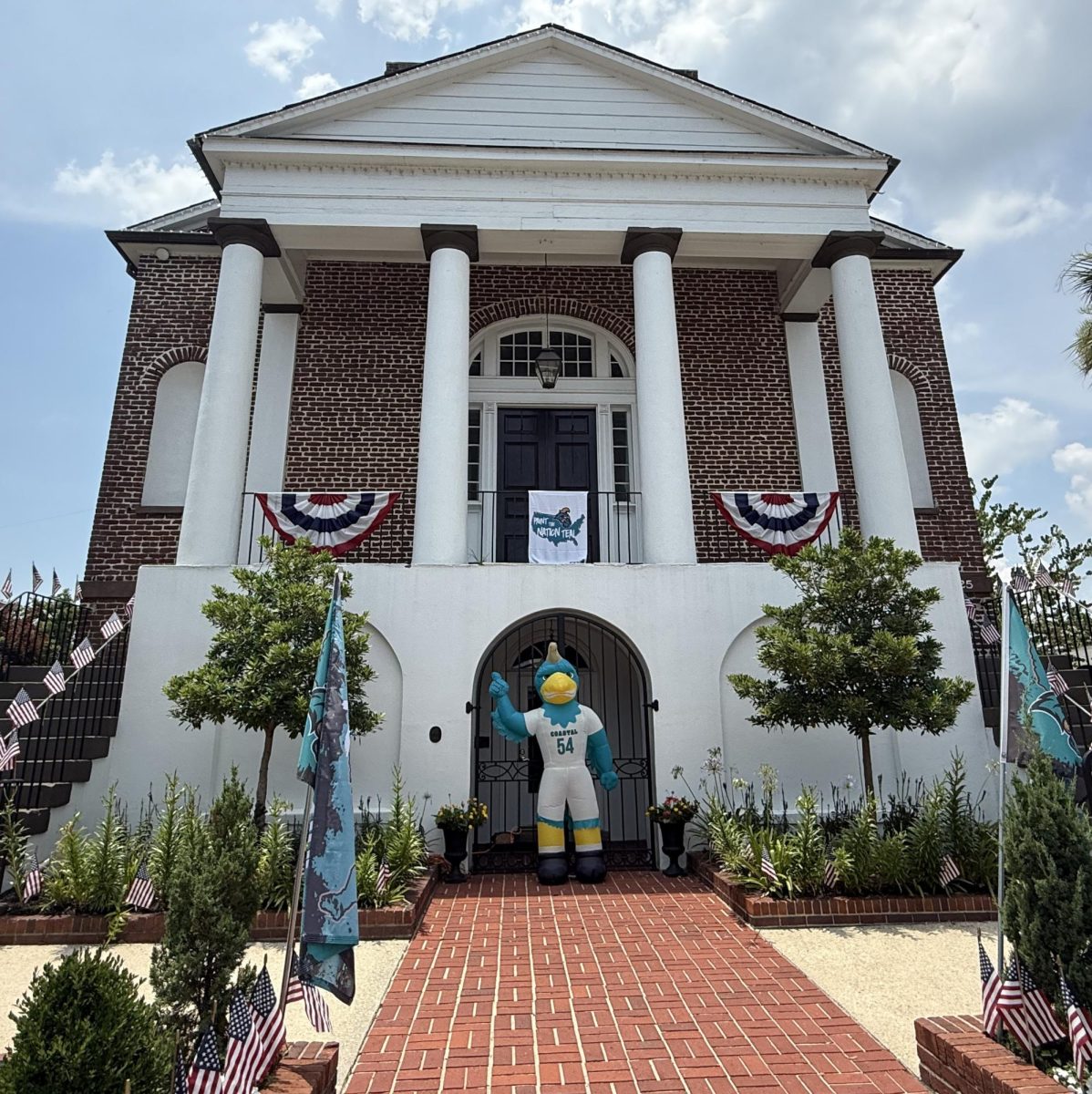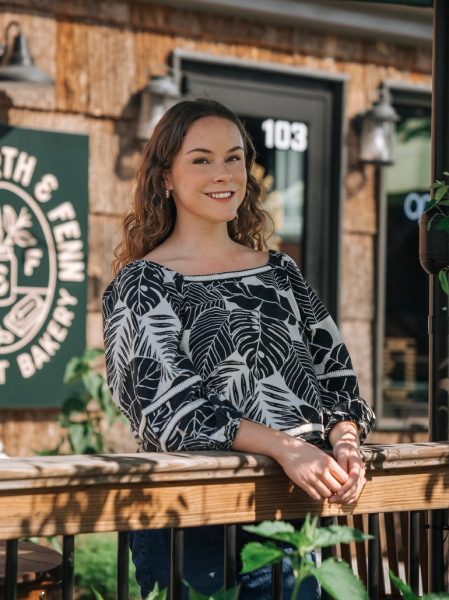The student writer and director of Coastal Carolina University’s “Hyacinth” performance broke the mold of a typical play, hoping to leave the audience with a feeling of relatability and an understanding of love that transcends time. He hoped it would touch everyone, especially the queer community.
Senior acting major Walker Kemp used the tragic Greek myth of Apollo and his lover Hyacinthus, the prince of Sparta, as a framework to tell a modern story of two boys: Hayes, a recent college graduate, and Leo, a musician. crafted a timeless love story that interacted with the audience, featured abstract lyrics, and utilized movement acting.
Premiered in Edward’s Black Box Theater on the weekend of Sept. 26, the two love stories occurred at different points in time but mirrored one another and overlapped throughout the show. Apollo and Hyacinthus’s story was told while Leo and Hayes experienced a love story of their own.
The play’s plot and theme symbolized the tension and drama filled reality that often occurs throughout relationships. Responding to such, the play encouraged audience members to work to accept themselves and others, to recognize growth and to recognize the importance of communication and honesty within relationships.
The play began with an overview of the four main characters, accompanied by an introduction recited by two chorus members. These introductions allowed each actor to shine while clarifying their roles for the audience.
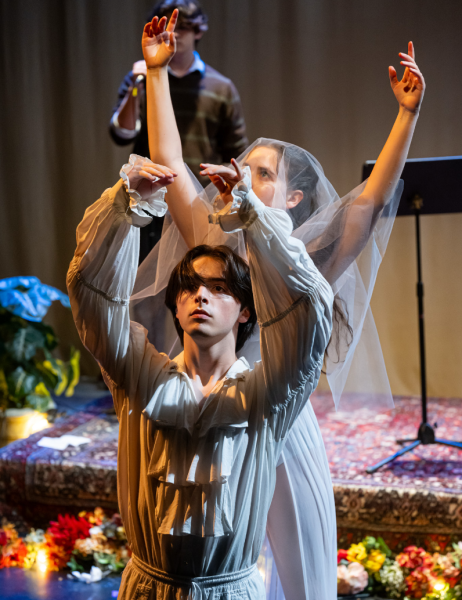
Photo credits to University Marketing and Communications
The two chorus members then took on the role of Zephyr and Zeph who attempted to interrupt the relationship between Apollo and Hyacinthus, and then Leo and Hayes. They tried to push the boys together and move their relationship along, while also throwing themselves into the mix and distracting Hyacinthus and Hayes from their partners, causing great tension and drama.
Kemp crafted a timeless love story that featured abstract lyrics, utilized movement acting and interacted with the audience. Not only did the audience get to observe the play but also involved themselves in the experience. Audience members were encouraged to cheer, yell and interact with the six actors throughout the performance.
The love story unfolded with the help of music and live concert elements. Many scenes mimicked the rehearsal process and performances of a live band, as Leo is the lead singer of a fictional band.
The live music aspect of this work highlighted the actors’ singing and guitar-playing skills, two talents that often don’t get to shine in a traditional play.
In addition to writing the play, Kemp also wrote the music.
“It was scary sharing my music at first, but the actors have really taken the songs and expanded them. They are better now than I could have ever made them myself,” Kemp said, “I already had most of the songs written, and I wanted to find a way for them to be performed, so when I found the story of Apollo and Hyacinthus, I was just like, wait, this might actually work.”
The music featured abstract lyrics rather than narrative. Because narrative songs are typically used in theatre, “Hyacinth” incorporated contemporary dance and choreographed movement to build out the story.
Throughout the show, characters Apollo, Hyacinthus and Zephyr appeared on stage together. These characters didn’t have any speaking roles but instead relied on movement acting and prop work to tell the story, along with the more abstract and modern songs.
Portraying Hyacinthus, freshman acting major Nic Elkins explained there is more freedom and creativity in devised works like “Hyacinth.”
When blocking the stage and choreographing, the actors and creative team came together to discuss the specifics of the story. Fine-tuning the details allowed the creation of movements that embodied the story. Actors learned how to be exact with their storytelling without using spoken words to explain their actions.
“My specialty in this show is storytelling through movement. Acting through only movement has helped me realize the depth you can achieve without words,” Elkins said.
Handheld props were also used as storytelling devices. Props such as ropes and sheets symbolized the interwoven nature of a love triangle. This allowed actors to physically push and pull one another, a representation of the push and pull that happens in relationships.
Flowers were another important aspect of the play. Not only is the work named Hyacinth because of the flower that Apollo created after Hyacinthus’ death, but because flowers symbolize love and forgiveness throughout the story.
The collaborative nature of this work didn’t stop at choreography and prop work. While Kemp is the main writer and director of the production, the process was a group effort.
“I tried really hard to not have any hierarchy, just a big community. It’s been really nice to have a bunch of different ideas in one room. We fostered more of a community and made it more collaboration based, rather than me just directing,” Kemp said.
By nurturing a work environment that is more collaborative than a traditional production, more students had the opportunity to take leadership roles, such as assistant director Nolan Nichols, a sophomore acting major.
“Because this is a devised work, it was easy for us to all come together and divide and conquer. Whatever Walker wanted I could take off his back and make it easier on him,” Nichols said.
Working on this project has enabled the team to grow and practice clear communication skills. Although Nichols highlighted contrast in Kemp’s directing style compared to his own, he said the process was productive and educating.
“This has been my first experience in a director position,” Nichols said. “I’ve learned how I work alongside people and how I work in the rehearsal space. I’ve learned what I need to work on and how I can grow,” Nichols said.




